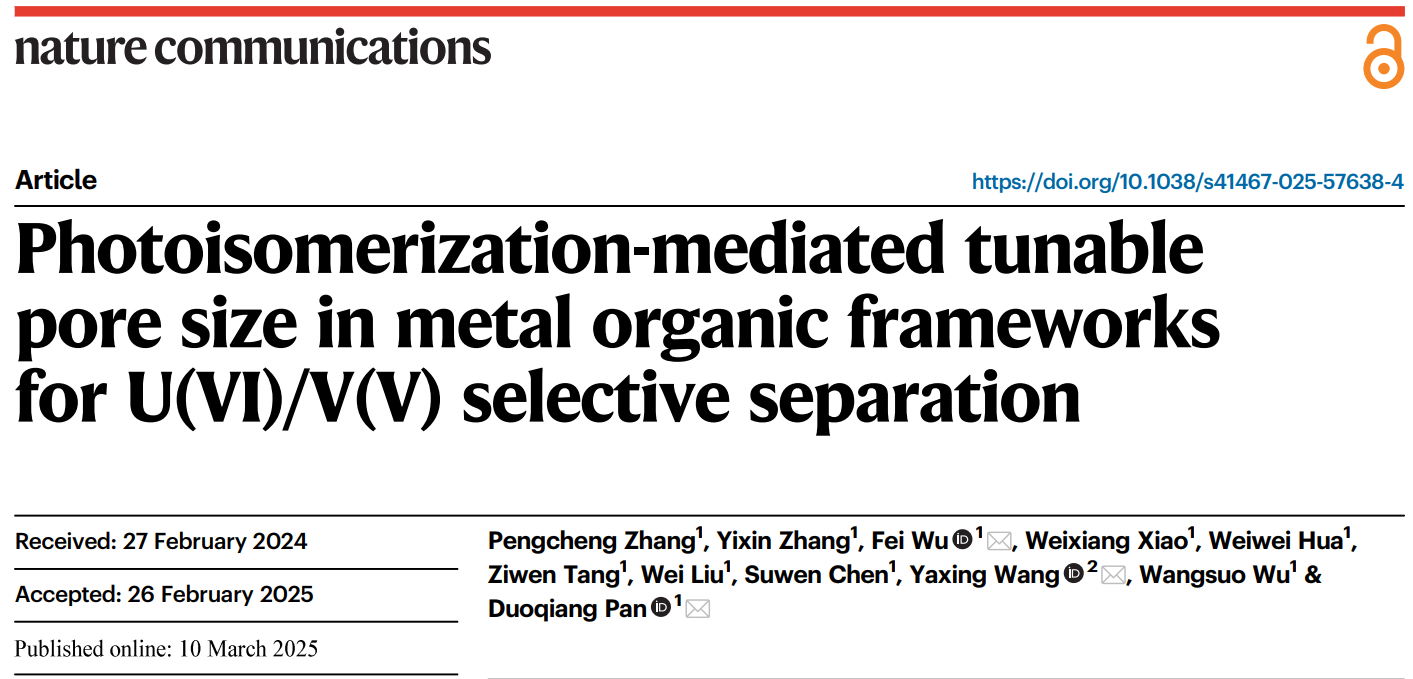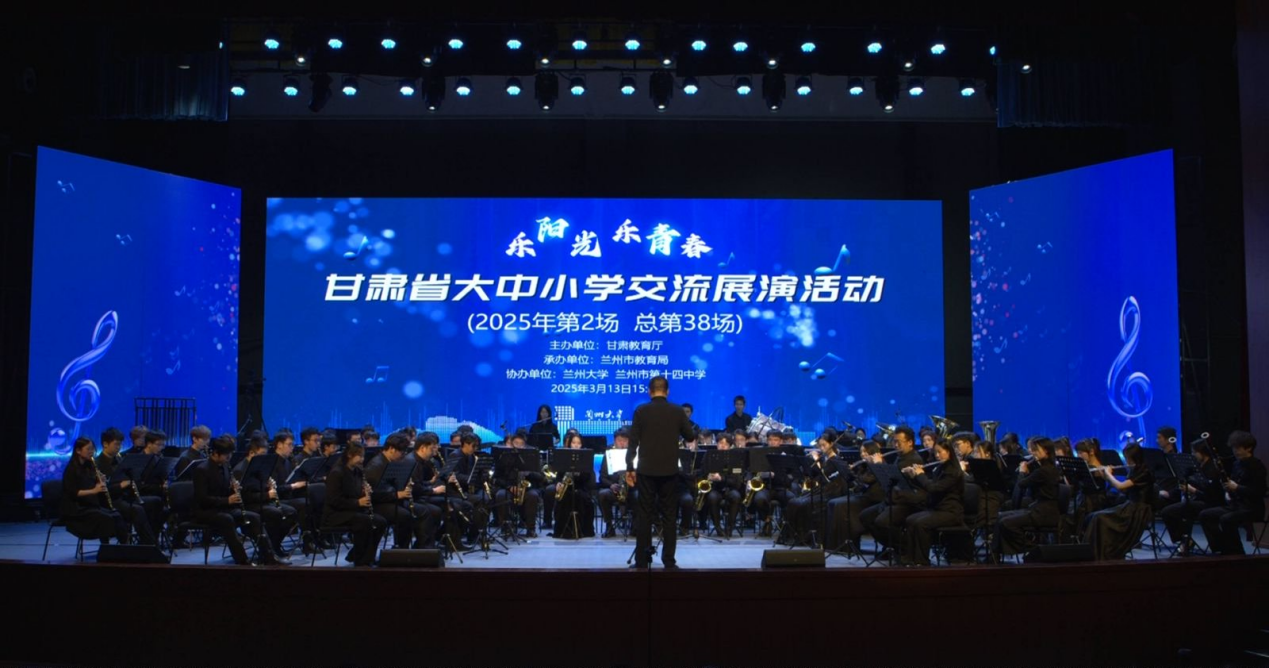From March 12th to 25th, scholars Nan Zhibiao, Wang Yanrong, and Zhang Jiyu from the Grassland Agricultural Science and Technology College were invited to visit International Maize and Wheat Improvement Center (CIMMYT) in Mexico.
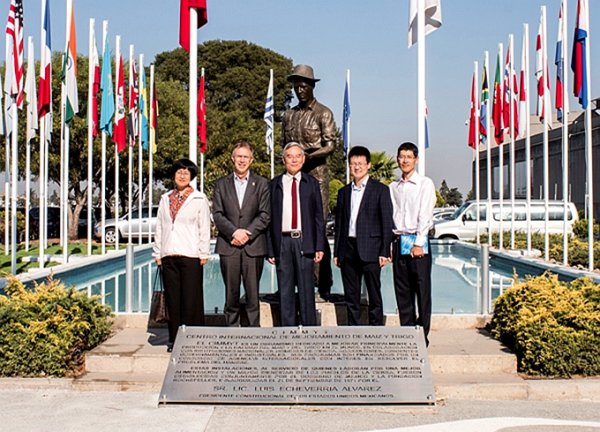
The team of Academician Nan Zhibiao visited CIMMYT headquarters in Mexico City and communicated with scientific staffs of its five project teams, which included wheat, maize, germplasm resources, socioeconomics and sustainable development.
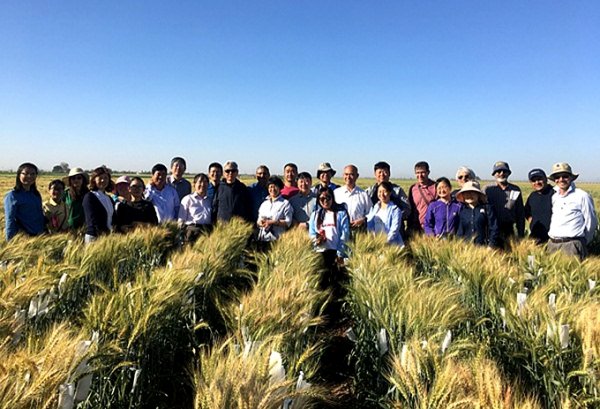
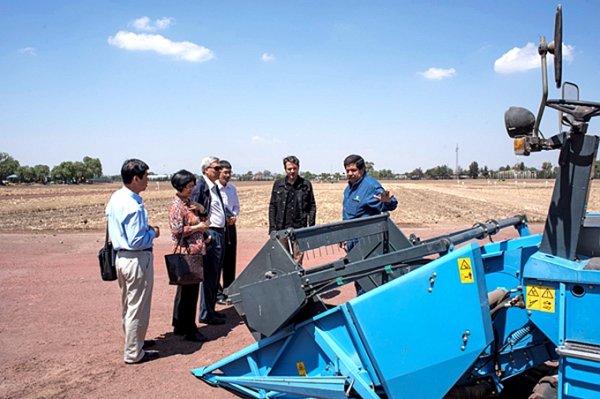
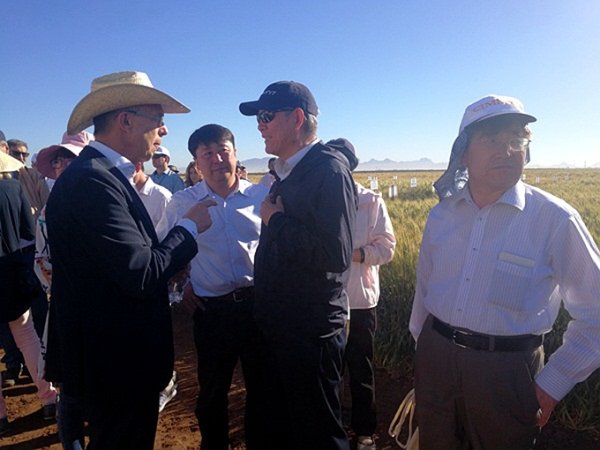
The team of Academician Nan then visited the CIMMYT Wheat Breeding Experiment Station and participated in its annual Field Week. About 250 visitors from more than 20 countries including the United States, Canada, Australia, India and Southeast Asia attended the event. During the trip, Academician Nan exchanged views with scientists of the wheat project on conventional breeding, quality breeding, physiological breeding and distant hybridization, as well as scientists of sustainable development projects. He also conducted field visits of various research groups, touring the wheat breeding demonstration base of the Mexican Academy of Agriculture, Forestry and Pastoral Sciences, and the breeding base of Dr. Rajaram, the former director of CIMMYT Wheat Breeding Project and the World Food Prize winner.
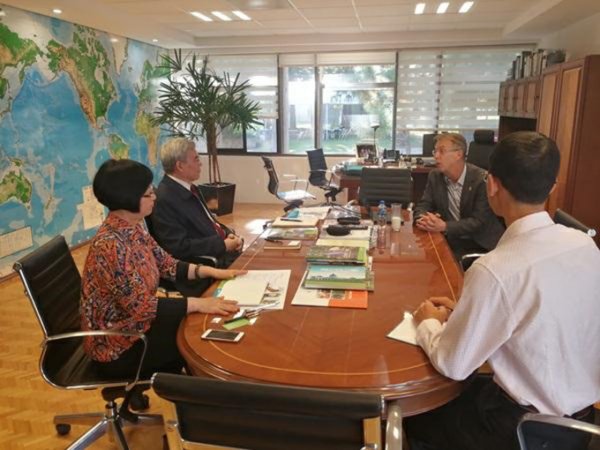
Prof. Martin Kroff, Director of CIMMYT, and Dr. Marianne Banziger, Deputy Director, respectively met with the team of Academician Nan, introducing the overview of CIMMYT and the cooperation with the world and emphasizing the importance and rapid development of cooperation with China. Both two sides agreed that they would cooperate in personnel exchanges and aspects on triticale, forage maize, germplasm resources, agricultural economy, and rotation system, etc.
The Chinese team also held a discussion with Chinese visiting scholars and international students from CIMMYT, showing sincere welcome to their working at Lanzhou University in future.
The introduction of CIMMYT:
CGIAR (formerly the Consultative Group for International Agricultural Research) is a global partnership that unites organizations engaged in research for a food-secured future.[4] CGIAR research is dedicated to reducing rural poverty, increasing food security, improving human health and nutrition, and ensuring sustainable management of natural resources. It is carried out by 15 centers that are members of the CGIAR Consortium, in close collaboration with hundreds of partners, including national and regional research institutes, civil society organizations, academia, development organizations, and the private sector.
(Translated by Yang Fan; proofread by Ren Yanyang)



